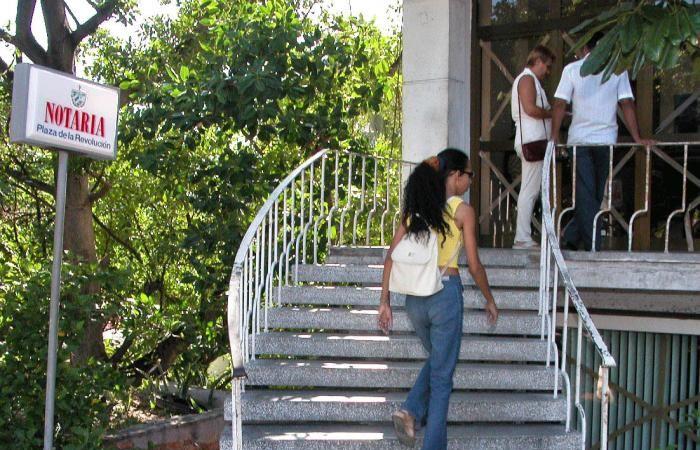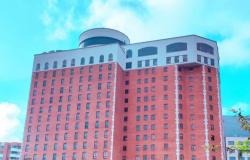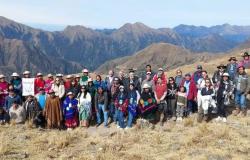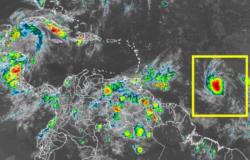The Cuban notary has always been the recipient of a wide spectrum of powers, unlike what happens in other international contexts in which it struggles with the judicial power, and with other areas of administrative competence.
In an interview with Granma, Dr. Yanet Alfaro Guillén, president of the Cuban Notarial Society, said that there are many actions that natural and legal persons can take in the exercise of their rights or in compliance with their statute before a notary public.
He commented that, in the country, this expansion occurs with Law 50 of State Notaries – in force since 1984 –, considered the moment of greatest expression of dejudicialization with notarial destination in Cuba.
“At other times, what has occurred is a direct attribution of powers to the notary; that is, certain issues have been recognized that mark the evolution of substantive legal systems attributed or designated to the notary as a first-order official,” he added.
This means that they are not relegated from the judicial power, as is the case with the declaration of heir or perpetual memory, but rather they are, from the first moment, placed in the notarial statute.
All these aspects, he stated, reinforce the idea that the Cuban notary has always had the trust of the country’s highest authorities in matters related to the actions of people.
A DAY OF FRATERNIZATION
Fraternizing in the academic order and exchanging the practices and rigors that determine the exercise of the notarial function in the country is one of the objectives pursued by the 14th International Day of Cuban Notaries, an event that takes place from June 26 to 28 in the Havana Convention Palace.
The topics that focus the scientific attention of the event, said the President of the Cuban Notarial Society, are of marked importance both because of the impact they have on the exercise of the function or role of the notary, and because of the complexity that each of them they cover.
All of them, he added, are topics in training and composition that require not only the practical exercise that notaries in Cuba carry out every day, but also the theoretical construction and concepts necessary for each of the thematic axes of the event.
In this regard, Pedro Luis Landestoy Méndez, secretary of the Society and president of the Havana chapter, said that the three axes are the product of the new challenges of the reforms that have occurred in the law in Cuba.
The first focuses on the new notarial powers not only on the Island, but also compared internationally since it is an objective for the notary to have more and more functions.
The fundamental function, he said, is to invest all the legal acts carried out with public faith and, at the same time, he is a highly specialized professional in private law, which means he has a strong advisory and configuration function for private businesses.
He stressed that, in this sense, its function of conflict prevention is also seen, seeking to transfer to the notarial headquarters more powers and matters that historically are dealt with before the judiciary, and whose fundamental essence is litigious, which is why we speak of dejudicialization. .
Landestoy Méndez highlighted that the second of the thematic axes is assisted appearance, born from the great reform carried out by the Family Code.
In this sense, he highlighted the paradigm shift related to the exercise of legal capacity by people.
Previously, he noted, they could be incapacitated and a guardian was appointed to represent them or make decisions for them; but the new paradigm considers legal capacity as a human right.
«That was a challenge in the function of the notary. But today the question is how the appearance of the assistance figure is implemented, and in pursuit of the design and notarial instrument where the rights of people with disabilities are fulfilled, their full legal exercise is protected and guaranteed with the assistance of their figure. of support, is the second thematic axis,” he commented.
He pointed out that the third is about notarial powers in commercial matters, since with the restructuring of the Cuban economic model, the presence of micro, small and medium-sized companies, which take the form of limited liability companies and commercial companies, opened a wide tuning fork to notarial action.
He explained that in these processes the notary participates in their constitution and in the acts that occur during the life of these companies and, finally, in their dissolution, liquidation and extinction.
He highlighted that the Cuban notary, which for so many decades has had commercial matters outside its fundamental competence, is beginning to prepare to give accurate answers, design guarantee instruments, and foresee ways of solving the multiple vicissitudes that these societies may have in their existential interest. .
SOCIETY OF THE CUBAN NOTARIATE
The Society, added its President, is a section of the National Union of Jurists of Cuba, created by agreement of its board of directors in 1995, and brings together all professionals who exercise the notarial function throughout the country.
He stressed that it is structured in chapters that coincide with the provinces, which work in direct coordination with the Society’s board of directors and with the provincial Justice departments, “because the Ministry of Justice (Minjus) is the governing body for the exercise of the notarial function.”
Alfaro Guillén explained that notaries are appointed or removed by the Minister of Justice and the provincial directors; and the exercise of the function is governed by pronouncements issued by the Minister or delegated to the General Directorate of Notaries and Public Registries of the Minjus.
On the other hand, Landestoy Méndez explained that one of the objectives of the Society is to promote and encourage research and development of legal sciences.
“It is very common to see law as a practical exercise or even a bureaucratic function; but what is essential for society is to defend that law is also a science and, as such, it must have a development of research, methodologies and objectives to respond to the new scientific problems that occur in the exercise of the function,” he stressed.
That is why the Cuban Notarial Society defends, like others, the study and scientific research of the topics related to that sphere or function of law and, as its purposes are scientific and academic, they have a training and training objective. professional who contributes to the notary’s qualification.
The training, commented Alfaro Guillén, is coordinated by the board of directors and by each of the chapters that comprise it with scheduled courses on topics that should not be missing in the training plans, in correspondence with the needs of the chapters.
He added that the territories also promote and are in their free determination to organize cycles of conferences, postgraduate courses and preparations through the invitation of prominent professors or notaries who take the lead in certain topics.






